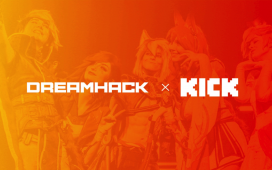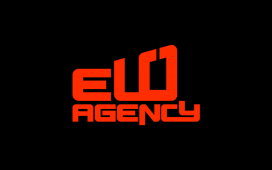The show floor wasn’t as crowded with exhibits this year at the Electronic Entertainment Expo (E3), the big game trade show in Los Angeles last week. And one of the beneficiaries of that were charities, like the Stack Up veterans in gaming group as well as the ESA Foundation, a charity associated with the Entertainment Software Foundation, which puts on E3.
The ESA Foundation, which makes grants to nonprofits that work on behalf of kids, set up its own booth in the South Hall of the Los Angeles Convention Center, and it staged a number of panels with the theme We Are. It offered a diverse view of who gamers and game developers are. The ESA Foundation, headed by executive director Anastasia Staten, also offers scholarships for minorities and women who want to be in the gaming industry. The foundation supports 144 charities, nonprofits, and schools.
I spoke with Staten at E3 about the foundation’s presence at the show. We talked about the challenge of inspiring women and minorities to join gaming, even as we still uncover the various abuses that happen in the industry. We also talked about the new kinds of careers that are being created by the likes of influencers, streamers, cosplayers, esports athletes — all the sorts of careers that didn’t exist 10 years ago and make parents pull their hair out when they find out what their kids are doing.
Here’s an edited transcript of our interview.

Above: Anastasia Staten (right) moderates a panel at the We Are booth at E3 2019
Image Credit: ESA Foundation
Anastasia Staten: Are you familiar with the relationship between the ESA Foundation and the ESA and E3? A lot of trade associations and entities like that do some sort of philanthropic work, but it’s usually a part of their business model. What I think is unique about ESA and the leadership at the time, the board leadership — some of them are actually still around — they felt that it was important enough that they made it a completely financially separate legal entity. We get this cool opportunity to be a part of the industry, but focus on our mission, which is providing educational opportunities to kids, leveraging video games and all the technology–leveraging and looking at video games as it relates to social impact.
Specifically, with We Are, we have partnered with Red Bull and they have — a few years ago we came across each other and started a conversation about what some of our goals were. One of theirs is to help promote positive game culture. For us it was a nice fit. When we looked at wanting to create more programming around our scholarship programs and our grants program, it was a nice partnership, to be able to say, “We focus a lot on job skills. You guys are more community.” Between the two of us we were able to create more of a big tent idea.
The purpose of We Are is to educate, inspire, and connect. We’re hoping to empower women to have a voice in the industry, to connect those that are already industry veterans with those who might be looking to join the industry, to inspire that next generation of creators, which marries beautifully with our scholarship program, which provides mentorship and financial support to women and minorities who are looking to get into video game arts and sciences.
GamesBeat: Have you been tracking some of the numbers as far as the percentage of the industry that’s women?
Staten: 22 percent, yeah.
GamesBeat: Is that being monitored closely? I remember Kate Edwards giving a speech a few years ago when it was around 20 percent. I don’t know what the rate of change is like.
Staten: It’s still hovering around the same percentages. There’s always a bit of left and right. We’re actively having this conversation as an entity, and for the foundation we’re actively trying to address and look at the pipeline and help promote that, and also think of ways of retaining talent in the industry. If you look at USC a couple of years ago, their incoming freshmen class had more women than men. When you see things like that, that’s where the numbers are going to start to shift. But we’re still in the middle of that pipeline development. It’s going to take a while for that to uptick.
You are seeing making video games and being a creator in this industry becoming a real conversation and a viable career option. We hear a lot from people, and I’m sure interviewing people over the years you do too — “My parents didn’t think this was a real job.” Now you’re seeing more and more schools, more college and university programs offering some form of degree or certificate for game design. That number is up significantly over the last five years. It’s becoming more of a formalized job path, if you will.

Above: Fortnite booth at E3 2019
Image Credit: Dean Takahashi
There are great-paying jobs in the industry. When you think about the average starting salary — it’s $97,000. When I think about the scholarship program and encouraging the next generation — the thing about our grants program, where we’re going into schools and funding after-school programs and other charities that are doing game design programs as an extension of their STEM programming and things like that — a $46 billion industry, when I hear that, I think of job opportunities. Just connecting students to know that that’s a job. That’s part of what we are, too, to inspire.
We have profiles of more than 200 women in the industry. It’s not just one vertical or one silo. It’s also about diversity of jobs. When we talk to students and use these women as role models, as examples of how they’re contributing and empowered in the industry, it’s a great opportunity to also talk about what that diversity of roles looks like. I’ll go into classrooms and we’ll have conversations and career exploration chats.
One of our big partners is After-School All-Stars, right here in L.A. They support 11,000 students in career exploration and after-school educational programming. You go into those classrooms and say, “Hey, who loves video games?” The whole class erupts. Everyone’s very excited about it. But then you say, “Who wants to make games?” Half the room, if you will, puts their hands down. When you start exploring that, some of it is a bit along gender lines. But also, some of it is, kids don’t think they’re good at STEM. This is a big industry and we want to welcome a lot of people into it.
The diversity of jobs is — okay, what else do you like? Someone might say they like fashion. Okay, great, you’ve heard of Assassin’s Creed? Do you know how Ubisoft makes that? They have artists and art historians to make sure costumes are period-accurate. It’s a great conversation, to talk about all of the opportunities that exist for that next generation of creators.

Above: The employees of Riot Games .
Image Credit: Riot
GamesBeat: A hard thing is reconciling inspiration with reality. There’s still a lot of exposing unfairness that’s happening in the headlines. All the stories about Riot and other companies that don’t seem encouraging for women or minorities. We’re still going through a stage of exposing unfairness and trying to do something about it. It seems like that makes the job of inspiration a little harder.
Staten: Part of inspiration is multi-fold, if you will. One part is holding people up as role models. If you don’t even know it exists, if you don’t see people that look like you, you don’t necessarily always know how to aspire to be that. That’s one part of it. But I think another part of it is, there are some really amazing conversations and dialogue happening about — Shawn Layden from PlayStation talked a couple of weeks ago about storytelling. What is this industry all about? It’s about many things, but one of the huge things is storytelling. How do we create the best experience for gamers? Part of creating that experience is unique stories. You’re not always going to get those unique stories if you don’t have other people at the table. A lot of companies are recognizing that and making efforts to bring those diverse voices to that table.
That’s another thing about empowering others and those unique voices. We have wonderful panels here throughout the course of a couple of days. We have everything from industry veterans to folks just starting out in their careers, lifting them up and putting them out there. You’ll show them as leaders in this industry. Getting women and others at the table, that leadership table, is another way to tackle some of the stuff that you’re talking about. It’s not just a matter of saying it will happen overnight. It’s all of us contributing collectively in the way that we’re empowered to help that’s going to tackle some of the things you’re talking about. An open dialogue is one of them.
GamesBeat: How do some of these conversations go, where you’re trying to convert someone to working in video games?
Staten: When you’re talking to anyone, regardless of age, it’s about understanding what their interests are. That, I think, is what’s exciting about this industry. If you love video games and you want to work in video games, this industry is so large, and there are so many facets to it. We will find a job for you. If you love video games and you want to be a lawyer? Excellent! We have a job for you. If you want to do production, esports is an up and coming form of entertainment and sporting event that needs production. If you want to be a camera operator, let’s talk about esports and what that takes.
It’s really just tapping into what are people’s interests and showing them a great example. We have a scholarship recipient right now. She loves video games, but her ultimate passion is music. She’s going to Berkeley School of Music, but she wants to take that music and make it for video games.

Above: ESA stats on gamers
Image Credit: ESA
GamesBeat: With esports, it seems to be a bit more on the leading edge of careers. That does directly translate into — you have to practice, play a lot, and ignore your other studies.
Staten: [laughs] We would never encourage ignoring your studies!
GamesBeat: I’m not sure whether esports programs at colleges should be a thing or not, or that people should maybe steer toward development if they’re interested in games. This notion of playing games, becoming a YouTuber or something like that, how do you feel like directing people toward that? Or is that too leading edge?
Staten: Again, it’s all about what is your passion, what is your interest? Just like all of us who have jobs, you have to find that balance. What’s that balance for you? Esports programming in colleges I think is a great thing. It’s another opportunity, another way for students to be able to take something that they’re good at, take their passion and help provide opportunities for themselves.
One of the things we’re excited about and working on right now is we’re adding to our scholarship program in furthering some of the inspiration and connections of We Are. We’re looking at launching esports scholarships for women and minorities, to encourage them to participate at the collegiate level. I think video games are an amazing opportunity. You talked about parents and encouraging students. Talking about women, girls are three times more likely to enter STEM fields if they play video games. There’s a real benefit for kids and students to be engaging in this type of activity.
GamesBeat: Maybe if it’s similar to traditional sports, with all the jobs that can come out of that space — there are a lot of jobs associated with sports that are in some ways hard to train for or get a degree for. I don’t know if esports will be the same way. There are a lot of jobs like videography, chronicling the lives of players. Is that what you’re thinking of as far as exposing people to all these different possibility.
Staten: We all spend a lot of our time at work. Having something that you love and that you have a passion for is really important. There are a lot of jobs that I don’t think people even know about in this industry. We had a wonderful opportunity on Monday. Disney hosted our scholars at their studio and talked about all the different jobs at Disney that touch video games and their IP. There were a couple students who walked away saying, “I never realized that might be an opportunity.” Taking their game design degree program and incorporating that into helping make experiences in the parks, or vice versa. Esports is very much like that too. There are all these opportunities that we can help show people, the diversity of what’s possible.

Above: Indiecade booth at E3 2019
Image Credit: Dean Takahashi
GamesBeat: I like the fact that these jobs or careers didn’t exist five or 10 years ago.
Staten: Or at least as many of them didn’t exist. There’s a lot of opportunity now.
GamesBeat: But I don’t know if I want to take responsibility for telling parents that their kids should go do this. It’s different from just telling them to go study math.
Staten: When you think about coding and computer science and a lot of the things that are involved in the development of a game, those are transferable skills. One of the things we do with our grants program is — we’ve supported 144 charities and non-profits and schools. Would we love every program that we make an investment and creative partnership in–would we love all those kids to come and work in the video game industry one day? Of course. That would be amazing. But one thing we take to heart is, regardless of all of that, we’re helping prepare them for job skills in a 21st-century market that’s evolving and changing.
There’s a real pathway that — coding is a second language, if you will, and everybody having a basic knowledge is something that may be important in the future. It’s not just about a career in video games. It’s about helping provide students with those skill sets. If you look at video games and game design programs, say an after-school program, the kids aren’t just learning those hard skills. They’re also learning soft skills. They’re learning teamwork. They’re learning how to compromise. They’re using critical thinking skills. They’re flexing their creative side. Problem-solving. They’re learning a lot of other skills that are transferable, regardless of what they want to do.
GamesBeat: If you were to dream about what you would do if you doubled the size of the foundation or doubled the companies participating, what would you do with that kind of budget?
Staten: My dream budget? [laughs] A lot of the work we’re doing around encouraging more diversity in the industry, I think that’s a beautiful thing that not only has the opportunity to create social impact and culture change, but also has the opportunity to help this amazing industry that supports the foundation and their work, in terms of the art and the amazing experiences that they create.
If I had my dream budget, being able to provide more scholarships, provide more opportunities to those scholars outside of a handful of really amazing mentorship sessions throughout the year, helping them do incubator projects, developing some of their own games before they grow up like the rest of us and get nine-to-five jobs — I think my dream really would be to invest more in those students. Also, specifically, looking at girls, catching girls a bit earlier in the pipeline, so they aren’t losing their interest in STEM and STEAM activities by the time they’re getting to high school and college.

Above: Female players are changing esports and broadening its appeal.
Image Credit: Playgroundz
GamesBeat: It seems like that losing interest part relates to gamer culture. Maybe that has to change as well, the angry male gamer on YouTube. There’s a certain culture there that doesn’t like this whole topic.
Staten: You have very vibrant and passionate fans in video games. That’s one of the things that makes it unique and exciting. You come here to E3 and the energy is palpable, when you open the doors and people want to experience their favorite new games. That passion sometimes carries over in other ways.
Part of We Are and part of the scholarship program is supporting — when we push that next generation out there, you change those numbers. You’re going to get more women and minorities creating games. You’re going to get more women and minorities at the leadership tables. Those are also places where the tone is set for this whole community. Together, all tides rise. I think that will really change some of the conversations.
Having a booth here on the floor at E3 to showcase some of this, next to all of these big brands and against all of this passion, is a wonderful opportunity for us to educate people, an opportunity to directly engage with the community. This has happened almost every year. We’ve been on the floor for three years, and it happened yesterday afternoon. A father came in and was asking questions. “What is this? Can I borrow your phone charger?” Yeah, that’s why it’s there! We just got in a lovely conversation with him, sharing what this is all about. He said, “You know what, this is what my daughter wants to do. I’m going to tell her about the website and ask her to go read some of the profiles and the inspiration from women that are already in the industry.”
That’s what we want to have here. Those are the experiences we want to have when we’re engaging with people. It’s nice to see that after three years, we’re still having those conversations and helping connect with people.














